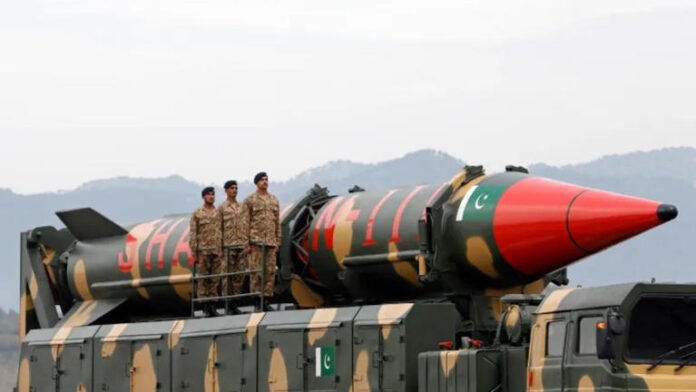Pakistan is set to conduct a missile test near its Karachi coast on Thursday, according to official maritime alerts and media reports. The test, coming on the heels of Indian Prime Minister Narendra Modi’s strong condemnation of cross-border terrorism and warnings of a “decisive response,” has triggered heightened alertness in New Delhi.
India is reportedly keeping a close watch on the developments, as this missile test is being viewed not just as a routine military exercise, but also a message of strategic posturing in the face of rising bilateral strain.
Missile Test Alert Issued Near Karachi
Pakistan’s Maritime Security Agency has issued a Navigational Warning (NAVAREA) to ships and aircraft, indicating missile firing exercises in the North Arabian Sea, off the coast of Karachi. The notice warns of restricted movement in the designated area for a specified time window on April 25, citing “operational reasons.”
Although such notices are not uncommon during missile testing, the timing of this move has caught the attention of Indian defense analysts. This marks Pakistan’s first known missile test since the Pahalgam terror incident that reignited tensions across the Line of Control (LoC).
Sources suggest that the test could involve a short-to-medium-range surface-to-surface missile, possibly from the Babur cruise missile series, known for its low-altitude trajectory and stealth capabilities.
India’s Response: Surveillance and Preparedness
In response to the developments, Indian defense forces have reportedly ramped up surveillance along its western seaboard, particularly focusing on maritime and aerial reconnaissance. The Indian Navy, in coordination with the Coast Guard and intelligence agencies, is monitoring the test zone and analyzing potential signals or shifts in Pakistani military behavior.
Indian Air Force sources also confirmed that radar stations and maritime patrol aircraft have been put on high alert. Additionally, India’s Strategic Forces Command is said to be on standby, as is standard procedure during heightened regional activity involving missile technology.
A senior Indian defense official, on condition of anonymity, stated, “We are not surprised by this announcement. These moves are part of a pattern, and we are watching closely. Every missile test in the current atmosphere carries strategic signals.”
Background: Modi’s Stern Warning
This missile test follows Prime Minister Narendra Modi’s recent comments, where he declared that those who “support terrorism” would not be spared and would face the consequences of their actions. The statement was widely interpreted as a warning to Pakistan after Indian intelligence indicated that Pakistan-based terror groups may have orchestrated the deadly Pahalgam attack.
India has since lodged a strong diplomatic protest with Islamabad, demanding action against the perpetrators and their handlers. While Pakistan has denied involvement, India has made it clear that it holds Islamabad responsible for allowing terror infrastructure to flourish on its soil.
Strategic Significance and Regional Impact
The North Arabian Sea, where the missile test is scheduled, is a key maritime zone not just for India and Pakistan, but for global trade routes as well. Any escalation or military misstep in the region has the potential to affect shipping lanes, oil transport, and regional stability.
Experts suggest that while missile tests are often part of annual military calendars, this particular instance appears to be deliberately timed to assert strength and deter any perception of vulnerability.
“Military signaling through missile tests is not new, but given the current climate, this test carries heavier symbolism,” said strategic affairs analyst Rahul Bedi.
Conclusion
As tensions simmer between the two nuclear-armed neighbors, the upcoming Pakistani missile test near Karachi adds a new dimension to an already fragile security environment. With India remaining vigilant, and Pakistan looking to display its strategic capabilities, the subcontinent once again finds itself on the edge of a potentially volatile standoff. All eyes are now on the Arabian Sea, where the ripples of this missile test may carry far beyond its shores.

